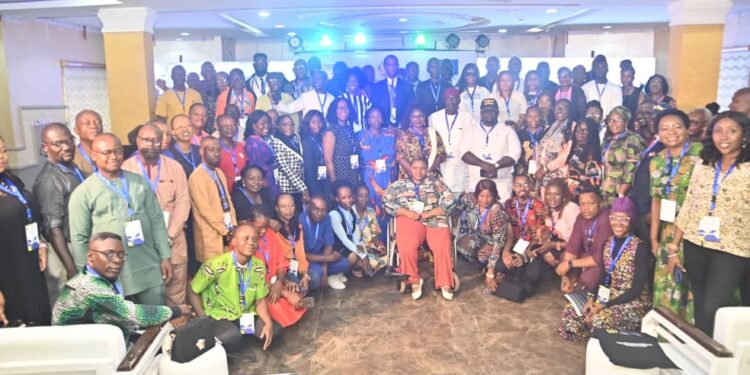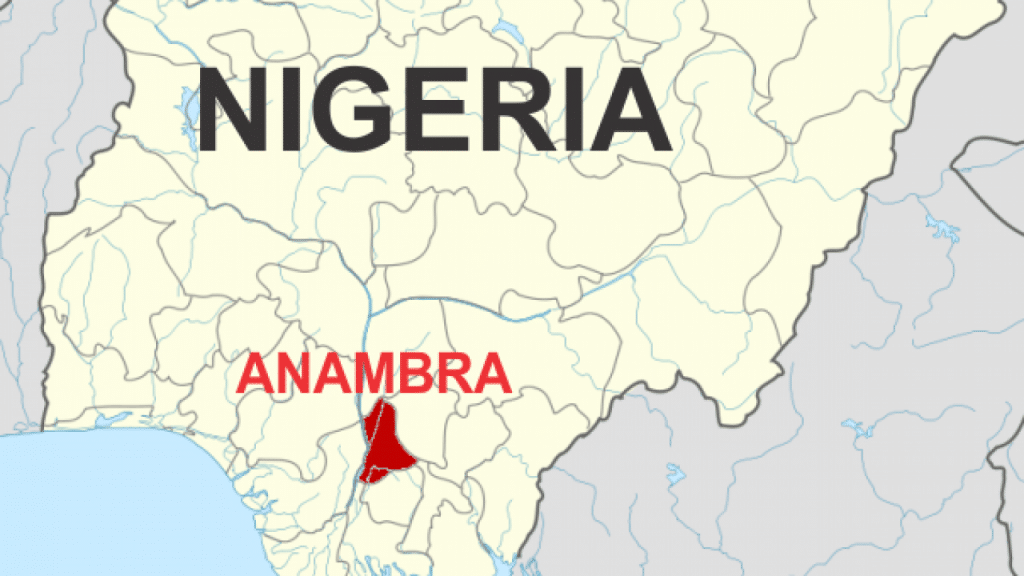Chinedum Treasure
Speaker, Anambra State House of Assembly, Hon. Somtochukwu Udeze has urged legislators at subnational levels, particularly those in Southeast to see Civil Society Organizations not merely as watchdogs, but as partners committed to success of their various communities as they are to the principles of democracy, equity, and justice.
Udeze who made the call in Awka, Anambra State at the South-West Regional Conference on Improving Regulatory Environment for CSO Operations in Nigeria, argued that subnational legislatures have unique and critical role to play in shaping the environment.
He said the success of CSOs in driving sustainable development and social change depends largely on the policy and legislative environment in which they operate.
“By enacting laws that promote accountability, facilitate partnerships, ensure safety, and foster inclusion, these legislatures can significantly improve the operations of CSOs, enabling them to fulfill their mandate more effectively.

“As we look forward to building a more inclusive, just, and progressive society, posterity beckons, and we all must work together to achieve the necessary operating environment to improve the CSO operational environment in the state,” he noted.
According to the Speaker, CSOs play integral role in the socio-economic and political development of nations, including providing voice for the marginalized, holding governments accountable, and serving as catalysts for development across sectors such as health, education, human rights, and gender equality.
“However, despite their significant contributions, CSOs face numerous operational challenges—ranging from limited financial resources and regulatory constraints to institutional barriers that hinder their effectiveness.
“Democracy represents the best form of government, as it offers opportunities for the effective participation and involvement of citizens. These citizens are members of society who constitute and make up civil society, which in turn dominates the democratic space as state and non-state actors.
“In the 25 years of Nigeria’s unbroken democracy, CSOs have demonstrated tenacity and resilience and have contributed immeasurably to the nation’s and its states’ development, growth, and progress. Significant CSO presence in a democratic government confers legitimacy, credibility, trust, and confidence in the government.
“This conference will surely facilitate conversations that will enhance the operating environment at the subnational level and improve civil society organizations through an effective policy and legislative framework,” he stated.
In his welcome address, Steering Committee Member, Community of Practice on Civic Space Strengthening, Kelechukwu Okezie called on Southeast state governments to revisit their stand with CSOs in the region and initiate actions to break down barriers and promote inclusivity, partnership and sustainable development.
He applauded CSOs pivotal role in national development, from promoting human rights, deepening democracy, and supporting marginalized communities, to addressing critical social issues such as education, healthcare, and poverty alleviation.
He however regretted that regulatory framework governing CSOs operations in Nigeria often posed challenges that hinder full realization of their potential.
“These challenges include compliance burdens, restrictive laws, and a lack of clarity on how to navigate the regulatory landscape effectively. More so, government should begin to open up and work with CSOs as dependable allies in development.
“Today marks a significant step toward fostering a more enabling environment for civil society organizations across our region and nation, as we convene to discuss and deliberate on building strategic partnerships for a sustainable operational environment for the non-profit sector in the South East and Nigeria.
“The operational environment across the states in the South East is one of challenges, risks and opportunities especially for actors in the human rights, anti corruption and democracy and good governance. Creating a conducive environment for CSOs to operate will ensure sustainable development of the region.
“This conference organised by Global Rights serves as a veritable platform for state and non state actors and other stakeholders in the zone to share experiences, identify barriers, and propose actionable strategies that will enhance the regulatory framework for CSOs not only in the South East but Nigeria as a whole.
“It is my hope and desire that through our collective wisdom, we can pave the way for policies that foster accountability and transparency without stifling the critical work that CSOs undertake in our communities.
Okezie appreciated Global Rights and European Union for making the event a reality in the region as well as Anambra state government for providing conducive environment for the conference to hold.
“I encourage participants to engage fully, share insights, and let’s work collaboratively toward sustainable solutions. It is only through our united effort that we can create a conducive environment for civil society to thrive and make a lasting impact on the lives of the people we serve,” he added.
Earlier, Executive Director, Global Rights, Abiodun Baiyewu expressed confidence that the conference would throw up common understanding on the harmonization of regulatory frameworks at states’ level as well as policy that could assist CSOs operate seamlessly.
Baiyewu who spoke through Program Manager, Edosa Oviawe said, “There have been concerns raised about the regulators thinking that CSOs do not want to be regulated but that it is not true, as the CSOs are only saying that the frameworks should be done in a way that solutions are created.
“The CSOs are asking to co-create these policies because you can’t shave a man’s head in his absence. We are having multiplicity of regulatory frameworks across the states.
“We have a situation where an NGO that has obtained a CAC registration is asked by various State Ministries to come and register with them and pay dues and declare returns and renewal of certificates.
“All of these are cumbersome and stiffling the work the NGOs are doing. If you have to spend all these energies to ensure compliance, what then do we deploy to the original work?
“We’re hoping to use this conference to come up wit a common understanding on how we can hamornize these regulatory frameworks at the states’ level and get a policy that can help the CSOs operate seamlessly.
“Government can also have a database of CSOs working in diverse areas and provide the necessary support whenever such is needed, as the overall work of these CSOs are for the good of the people, who the government actually, exists for.”






